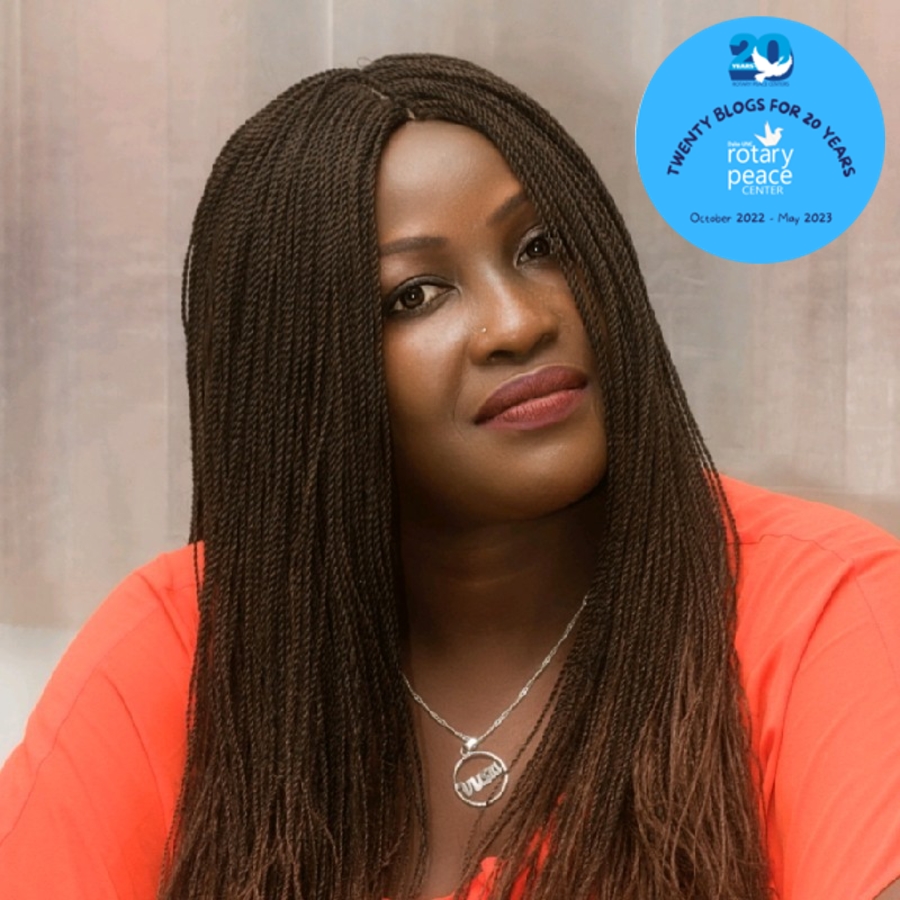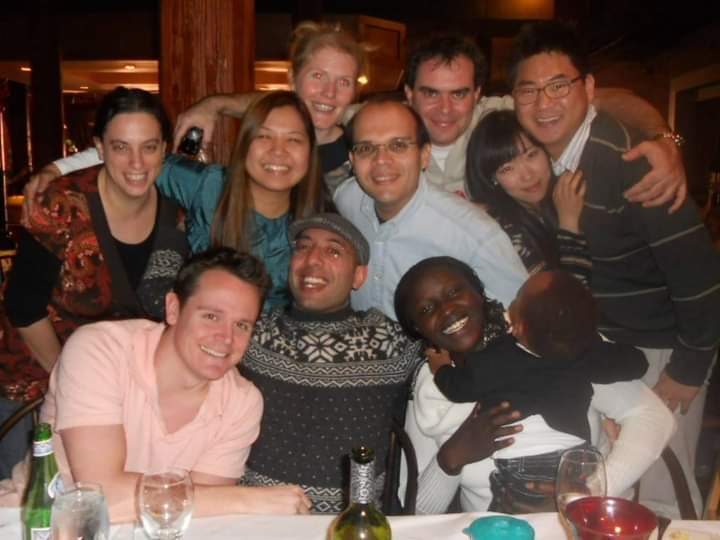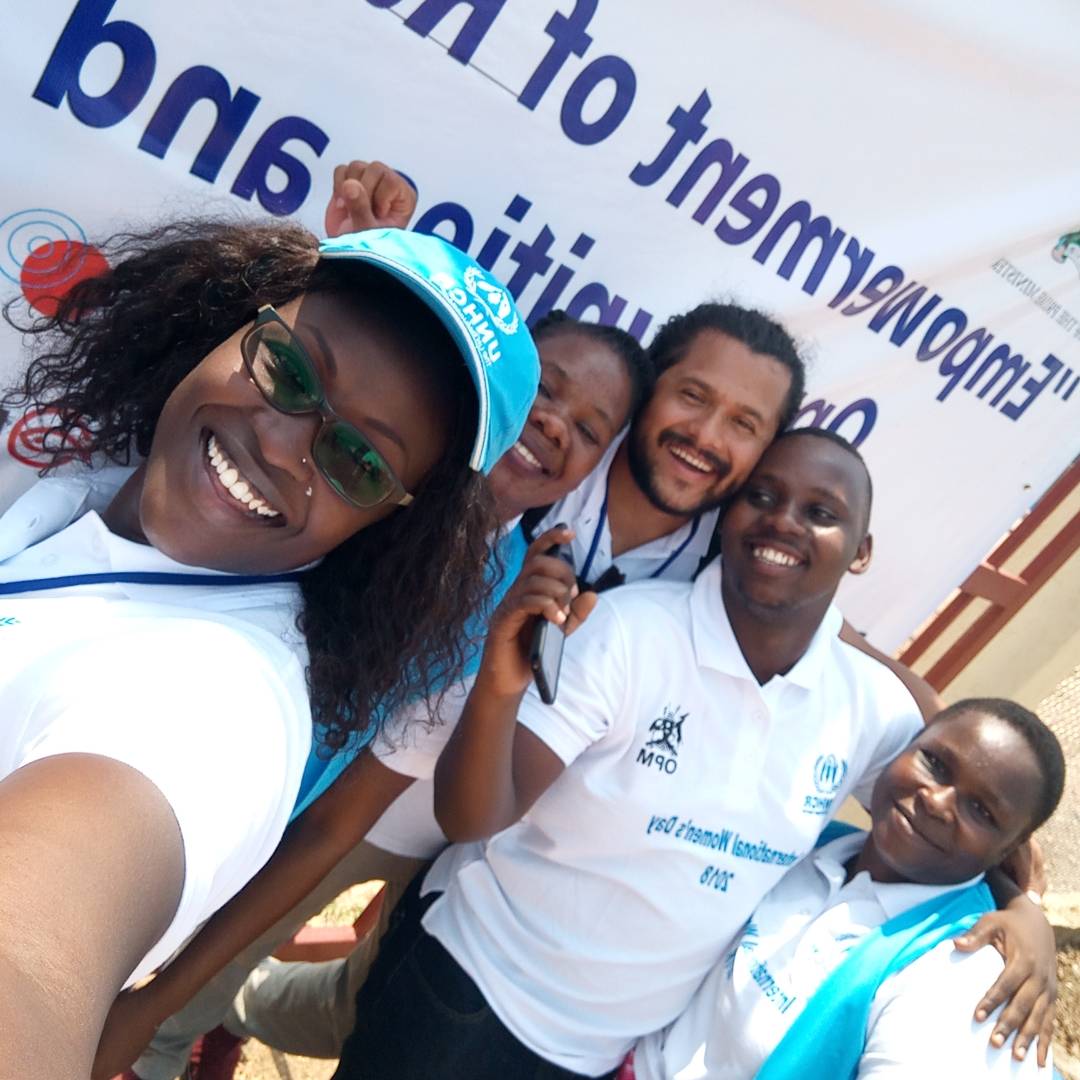Roselyn Vusia, Class 9 (2010-2012)
Twenty Blogs for 20 Years
Prior to joining the Master in International Development Policy program at Duke University, Roselyn Vusia served as Program Coordinator for the Action Group for Health, Human Rights, and HIV/AIDS (AGHA) in Uganda, organizing advocacy campaigns around issues such as transparency and accountability in the health sector and monitoring health rights violations. As a Rotary Peace Fellow, she continued to develop her work in international human rights and humanitarian law, ultimately joining UNHCR after graduation to assist in the implementation of the Comprehensive Refugee Response Framework (CRRF). She now serves as the Deputy Head of Programme for the RISE project at GIZ (the German Agency for International Cooperation), which seeks to create inclusive socioeconomic opportunities for refugees and host communities.
 In October 2009, I received a phone call that I had been selected for the prestigious Rotary Peace Fellowship. The next best news I received was that I was admitted to my first choice of Peace Center (which was Duke-UNC) and that I had to start the application process for admission to Duke University. I embarked on this as a matter of urgency. My admission came through and a million questions went through my head. How was I going to a foreign place with a 7-month-old baby? How was I going to manage studies with this child after my nanny was denied a visa to the U.S.?
In October 2009, I received a phone call that I had been selected for the prestigious Rotary Peace Fellowship. The next best news I received was that I was admitted to my first choice of Peace Center (which was Duke-UNC) and that I had to start the application process for admission to Duke University. I embarked on this as a matter of urgency. My admission came through and a million questions went through my head. How was I going to a foreign place with a 7-month-old baby? How was I going to manage studies with this child after my nanny was denied a visa to the U.S.?
Despite the uncertainty surrounding how I would manage, I would not give up the fellowship; instead, I decided to seize the moment and proceed with my plans to travel for my studies. Luck was on my side that my mother-in-law was given a visitors’ visa, and she was able to come and help us settle in for a few months. Our travel was another dramatic experience with missing flights, and what was meant to be an 18-hour flight turned out to be an over 26-hour flight. On arrival, we were received by the friendly faces of Scott and Lori Reynolds. My heart was at peace once again. Each time I think about my host family, I smile – they were the kindest, most welcoming, and calmest people. I was shown my way around and settled in, finding a house, buying a laptop, and finding formula for a fussy child who rejected all the formula there was. In a few days, I was able to find a house, and my new family moved us in and helped me register at the university as well.
Then I met the center staff and other fellows from Class 9. They were a fantastic group of people with an array of cultures and experiences put together. I knew this was going to be a great journey and a great experience. What is unique about this program is that it brings together people from different backgrounds who then become family and a support system for each other. We didn’t only focus on class work – the local Rotary Clubs engaged us in community activities and networking events. At Duke, the course subjects were selected by people experienced in the development world and were taught by experts in the field. The master’s project was a real-life topic with a real-life client who you would choose to support your research, and in most cases the applied field experience came in handy to support this process. At this point, I again confirmed that I had made the best choice and I was in the best hands – my life would never be the same again.
After graduating from Duke, finding a job was not a problem because the training I got was not only in class – I also received career guidance from my professors and Linda Scovill who played a great role here. The fellowship empowered us with tools that we can use to reach out to policymakers who can make a change in the lives of the underprivileged. Since I left Duke, I have worked on a number of projects for different organizations ranging from customary land rights in Northern Uganda – focusing on mediation and advocacy for women’s customary land rights as well as governance and social accountability programs – to implementing the humanitarian development nexus program with UNHCR. I now work with the German Agency for International Cooperation (GIZ), working on a project aiming to create inclusive socioeconomic opportunities for refugees and host communities. I have also been engaged in supporting local Rotary Clubs in Uganda when called upon. The topics presented at Duke-UNC Rotary Peace Center’s annual conference at the end of my fellowship program gave Rotarians in attendance the assurance that the investment they made was not in vain; instead, we were able to show that:
…”investing in peace is not just getting an education and sitting at a round table to negotiate for peace or mediating between conflicting parties, but rather, the actions we take to ensure the children in Kibera have clean water, partnerships are formed for better service delivery, girls get equal access to education as boys, the people of South Sudan get adequate health services through effective policies, the communities in Sierra Leone and Guinea Bissau are involved in making policies that affect them, the indigenous people of the Amazon are heard and the U.S. and Iran try to find another option to end the conflict.” [This is an excerpt from my speech at the conference]
For me, Duke-UNC was a game-changer, and I am grateful for the guidance and support of the Center’s staff, starting with Susan Carroll and the entire team, the staff at Duke and UNC, my host family Lori and Scott, Cary McGregor Rotary Club, my master’s supervisor Frank Webb, and the various Rotary Clubs that invited me to speak at the events coordinated by Barry Phillips. I am very grateful for the opportunity presented by Rotary international through the Rotary Peace Fellowship – it is an investment that is worthy. We have an awesome network of alumni working in different parts of the world and jump in to support where needed. My boy is now 13 and is looking forward to pl. To date, when I am asked how I managed on my own with a baby that young, I say I was never alone! The training I got can be summed up in the words of Abdul Kalam: “Learning gives creativity. Creativity leads to thinking. Thinking provides knowledge, knowledge makes you great.”


